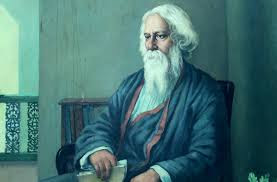Gretel
Summary
By Garrison Keillor
Gretel had to get half of the profits earned by selling the book, but Hansel's lawyers put her under a spell and make her sign a new contact. It said that she would get a very little money and that book was pure imagination.
Hansel was presented as strong and capable hero and Gretel as a weak sister. The father was shown as a loving person and the mother as the wicked stepmother, who forced him to give up in the jungle.
But Hansel had been incapable of doing anything. She had beaten him to make him walk. Gretel had cried because she had carry him on her back. The father was not loving person. He would get drunk, Glady's, the stepmother, could not do anything without his permission. It was his idea to give them up in the jungle. In those days many parents would give up their children in the jungle hoping that they would be fed by birds or animals or persons. Gretel was not worried because of such hope. Although it was a very hard experience, not a single child suffered permanently and such a child would become a better person afterward. But Hansel was still a stupid person. Hansel and their father lived comfortably in a great building and Gretel and Glady's had no house of their own. And the witch suffered most. Now Gretel felt sorry for the witch because she had pushed her without a good reason. She was not after her. She was after Hansel and she wanted to make a new statement. Gretel would have understood the witch's point of view.
1. Keillor's language is different from that of both the original and Coover's transformation. How would you describe it? Consider specific expression.
Ans: Keillor's language is different from that of both the original and Cooveyr's transformation. Both Coover and the Grimms use narrative style. The main purpose of this style is to relate an event or series of event or series of events. They tell what happened to the boy, the girl, the old man, and the witch. To describe the setting they are literary language. They use simile, metaphor etc. And to present the conversation they use everybody language. But Keilor presents 'Gretel' as the form of statement made by Gretel. He uses persuasive style. The purpose of this style of writing is to convince, arouse, attain a specific goal. Gretel attempts to persuade the readers not to believe in what Hansel has said. Gretel wants us react positively to her arguments. She wants us to think the way she think the way she thinks and to response actively. If we don't examine her statements critically, we are persuaded to believe that all the male characters in the story are bad and they have exploited all the male characters. Similarly, we also believe that the witch and the stepmother, are not as bad as they were supposed to be. To achieve his goal the writer has appealed to the reader's reason, emotions are sense of ethics. For example, "........his lawyers put me under a spell........I guess she ( the witch ) is the one who suffered most.......why did I give her the shove"?
2. Sum up Gretel's characters in your own words. What kind of person is she? What are her values? Consider the last four paragraphs in particular.
2. Sum up Gretel's characters in your own words. What kind of person is she? What are her values? Consider the last four paragraphs in particular.
Ans: If we were are to sum up Gretel's character in a phrase, we can say that she is an ardent feminist. She supports the principle that women should have the same rights and chance as men. She believes that a women should raise a voice aganist injustice. Gretel agreed that the profit should be equally divided between her and Hansel. She is against male superiority. She tries to prove that instead of being a strong and resourceful person, Hansel is a nervous wreek. Similarly, her father is not loving father. She supports the women. For example, her stepmother is not wicked because she would do what her husban wanted her to do. It was his idea to give up the children in the jungle. She and her stepmother hae not got the right share of the property. She has sympathy even to the witch. She can't tolerate injustice. Her stepmother was not wrong even if she had suggested to give up the children in the jungle. She did so because of faith. She thought that birds or animals or good persons would feed them. Gretel, a strong supporter of justice and equality, criticises all the injustices and discrimination.











